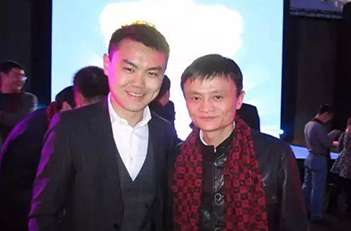A slow lifestyle in a 'slow city'
By Wang Xin (Chinadaily.com.cn) Updated: 2015-05-08 16:00
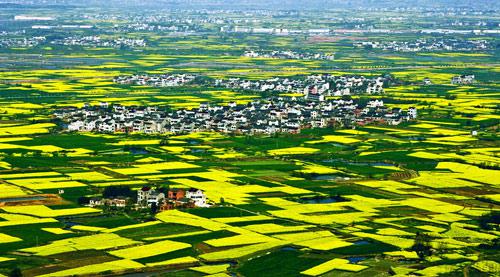 |
|
Yaxi has idyllic scenery. [Photo by Wei Hongwei] |
Having a population of less than 50,000, pursuing sustainable ways of life, resisting pollution and noises, supporting urban greening and traditional handicraftsand setting no fast food areas or big supermarkets—these are the actions that create an “international slow city” . Yaxi Ecological Tourism Destination in Gaochun County, Nanjing, China is such an international slow city.
Slow Cities, or Cittaslow, is a new urban mode that originated in Italy. In 1999, inspired by the Slow Food movement, four small Italian towns announced they would establish “Cittaslow International” to devote themselves to advocating slow living, protecting local features against the background of globalization, and improving the quality of life of local residents. So far, many cities in the world have joined “Cittaslow International” and become “international slow cities” , of which two are in China. Yaxi Ecological Tourism Destination, an area of about 50 square kilometers in northwestern Yaxi, Gaochun County, Nanjing, was awarded the title at the Cittaslow International meeting in November 2010; the Town of Yanyang, Meixian District, Meizhou City, Guangdong, joined the organization last June.
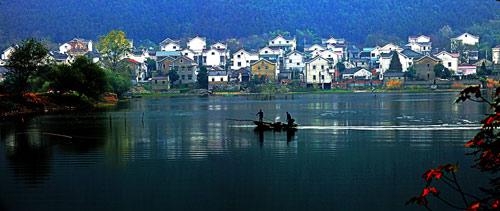 |
|
Yaxi is quiet and beautiful. [Photo by Zhang Qihua] |
Cittaslow International meets many threshold requirements for a slow city, such as having a population of less than 50,000; restricting the use of autos and limiting the speed limitI on urban streets to no higher than 20km/h; having a noise management system and as few advertising bulletin boards and neon lightsew as possible. Other requirements met include having an entire environmental urban sewage eco-disposal systemand ensuring preservation of the personality of the city against the background of globalization - especially protecting products significant as local symbols.
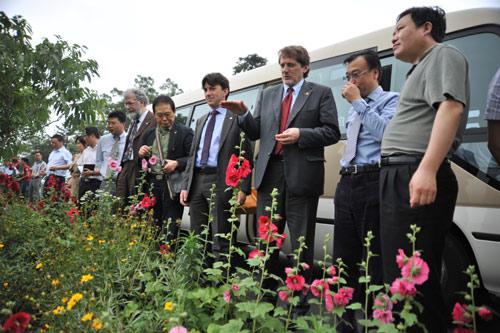 |
|
Cittaslow International organized experts to inspect Yaxi. [Photo by Wang Xin] |
Yaxi was selected as an “international slow city” due to the strong recommendation of Angelo Vassallo, mayor of Pollica, Italy, and vice chairman of Cittaslow International. To him, the town of Yaxi completely meets the standards as an “international slow city.”
About 22,000 people live in Yaxi Ecological Tourism Destination. The six local administrative villages are located along both sides of a 48 km scenic belt, presenting the ideological golden ratio of “30 percent mountains, 20 percent waters, and 50 percent lands.” It’s a famous place for appreciating canola flowers. Each spring, there is a Canola Flower Festival. Besides canola flowers, tourists can also enjoy sunflowers, lavender, Acer palma tum and coreopsis, as well as a pear garden and an organic tea garden. Yaxi Ecological Tourism Destination is also home to such historic relics as the Nancheng site, Yongqing Temple, Daguantang, Zhejunshan drill field and Zhang Xun Memorial Hall. Some folklore arts also have been passed on and carried forward here.
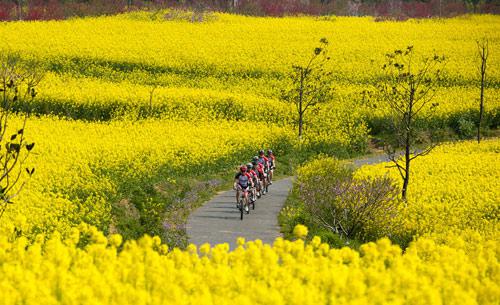 |
|
A sea of canola flowers. [Photo by Wang Xiulong] |
In the town of Yaxi, almost all public facilities and many private facilities are labeled with the symbol of a snail to visually remind people to slow down and enjoy the slower-paced life in Yaxi. In slow cities, the travelling tempo has to be slowed down first. The “low-speed roads” in the destination have lanes for e-bikes and bikes and walkways, allowing tourists to truly “slow down.”
It is understood that Yaxi International Slow City will be dedicated to building the first “slow culture experiencing destination” in the world, that is, some space for presenting and spreading the slow culture in a centralized way. In Yaxi, people get closer to the nature and labor by themselves. The Slow Village restaurant with distinct local slow food culture also allows tourists to experience the essence of slow food culture.









